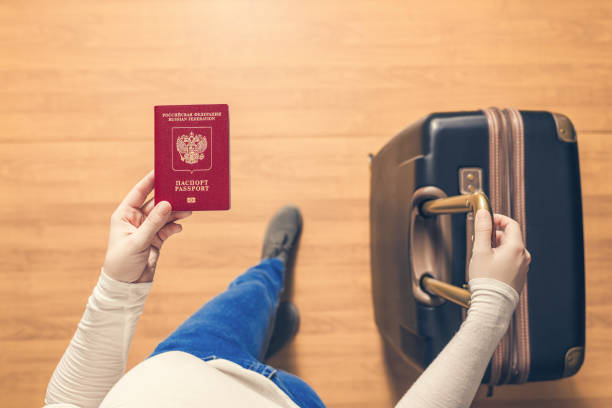Introduction
In an increasingly globalized world, student travel abroad has become more accessible and popular. However, with the excitement of exploring new cultures and experiences comes the need for comprehensive insurance coverage. Insurance for student travel abroad is essential to mitigate risks and ensure peace of mind for both students and their families.

Importance of Student Travel Insurance
Student travel insurance provides financial protection and assistance in case of unexpected events such as medical emergencies, trip cancellations, or loss of personal belongings. It offers a safety net that allows students to focus on their studies and exploration without worrying about potential setbacks.
Types and Categories
Comprehensive Coverage
Comprehensive insurance plans typically include medical coverage, trip cancellation/interruption, emergency medical evacuation, baggage loss/delay, and 24/7 assistance services. These plans offer extensive protection for various travel-related risks.
Medical Insurance
Medical insurance covers expenses related to illness or injury during the trip, including doctor visits, hospitalization, prescription medications, and emergency medical evacuation. It is crucial for students traveling to countries with high healthcare costs.
Trip Cancellation/Interruption Insurance
Trip cancellation/interruption insurance reimburses non-refundable expenses if a trip is canceled or cut short due to covered reasons such as illness, injury, or natural disasters. It provides financial protection against unexpected disruptions.
Emergency Medical Evacuation
Emergency medical evacuation coverage ensures prompt evacuation to the nearest adequate medical facility in case of a medical emergency that cannot be adequately treated at the current location. It covers transportation costs and medical assistance during transit.
Baggage Loss/Delay Insurance
Baggage loss/delay insurance compensates for the loss, theft, or damage of baggage and personal belongings during the trip. It also provides reimbursement for essential items purchased due to baggage delay.
24/7 Assistance Services
24/7 assistance services offer round-the-clock support for emergencies such as medical referrals, legal assistance, travel arrangements, and translation services. It provides invaluable assistance in unfamiliar situations.
Symptoms and Signs
Common Symptoms
Common symptoms of travel-related issues include fever, diarrhea, vomiting, respiratory infections, and skin rashes. These symptoms may indicate various health concerns such as infections, food poisoning, or altitude sickness.
Uncommon Symptoms
Uncommon symptoms that may arise during travel include exotic diseases, allergic reactions to local foods or insects, and adverse reactions to medications. Prompt medical attention may be necessary to diagnose and treat these conditions effectively.
Causes and Risk Factors

Biological Factors
Biological factors such as pre-existing medical conditions, genetic predispositions, and immunization status can influence an individual’s susceptibility to health risks while traveling abroad. It is essential for students to assess their health status before embarking on international trips.
Environmental Factors
Environmental factors such as climate, altitude, pollution, and endemic diseases vary from one destination to another and can affect travelers’ health. Proper preparation and preventive measures are essential to minimize environmental health risks.
Lifestyle Factors
Lifestyle factors such as dietary habits, physical activity levels, alcohol consumption, and tobacco use can impact travelers’ health and well-being during their time abroad. Adopting healthy behaviors and avoiding risky activities can reduce the likelihood of health problems.
Diagnosis and Tests
Medical Consultation
Seeking medical consultation before traveling abroad allows students to address any pre-existing health concerns, receive necessary vaccinations or medications, and obtain personalized travel advice. It is an essential step in ensuring a safe and healthy journey.
Diagnostic Tests
Diagnostic tests such as blood tests, imaging studies, and screenings for infectious diseases may be recommended based on travel destinations, activities, and individual health history. These tests help identify potential health risks and guide preventive measures.
Treatment Options
Medical Treatments
Medical treatments for travel-related illnesses and injuries may include antibiotics, antimalarial medications, antidiarrheal drugs, pain relievers, and topical ointments. Timely medical intervention is crucial for managing health issues effectively.
Therapies
Therapeutic interventions such as rehydration therapy, respiratory support, wound care, and physical therapy may be necessary to address specific health concerns encountered during travel. These therapies aim to promote recovery and restore well-being.
Lifestyle Adjustments
Lifestyle adjustments such as rest, hydration, balanced nutrition, sun protection, insect bite prevention, and safe sex practices play a vital role in maintaining health and preventing illnesses while traveling abroad. Students should prioritize self-care and wellness practices.

Preventive Measures
Vaccinations
Vaccinations protect against various infectious diseases prevalent in specific travel destinations, including hepatitis, typhoid, yellow fever, and influenza. Students should consult healthcare providers or travel clinics to receive recommended vaccinations before departure.
Medication
Carrying an adequate supply of prescription medications, over-the-counter remedies, and first-aid supplies is essential for managing chronic conditions, minor ailments, and emergencies during travel. Students should pack medications in their carry-on luggage and carry copies of prescriptions.
Hygiene Practices
Practicing good hygiene habits such as frequent handwashing, using hand sanitizers, avoiding contaminated water and food, and maintaining cleanliness of accommodations helps prevent infections and gastrointestinal illnesses while traveling.
Safety Precautions
Taking safety precautions such as staying informed about local laws and customs, avoiding risky behaviors, securing valuables, using reputable transportation services, and staying vigilant in unfamiliar surroundings reduces the risk of accidents and incidents.
Personal Stories or Case Studies
Sarah’s Experience in Europe
Sarah, a college student, traveled to Europe for a semester abroad program. During her trip, she developed a severe allergic reaction to a local dish and required emergency medical care. Fortunately, she had comprehensive travel insurance that covered her medical expenses and ensured a smooth recovery.
James’ Adventure in Asia
James embarked on a backpacking adventure through Asia during his summer break. While trekking in the mountains, he experienced altitude sickness and needed urgent medical attention. His travel insurance provided coverage for medical evacuation and treatment, allowing him to continue his journey with peace of mind.
Expert Insights
Dr. Emily Chen, Travel Medicine Specialist
“Students planning to travel abroad should prioritize their health and safety by seeking pre-travel medical advice, obtaining appropriate vaccinations, and purchasing comprehensive travel insurance. Being prepared can make a significant difference in managing unexpected health issues during the trip.”
Conclusion
Traveling abroad as a student offers unparalleled opportunities for personal growth, cultural immersion, and academic enrichment. However, it is essential to prioritize health and safety by securing adequate insurance coverage, seeking medical advice, and adopting preventive measures. With proper planning and preparation, students can embark on memorable and rewarding adventures around the world.


